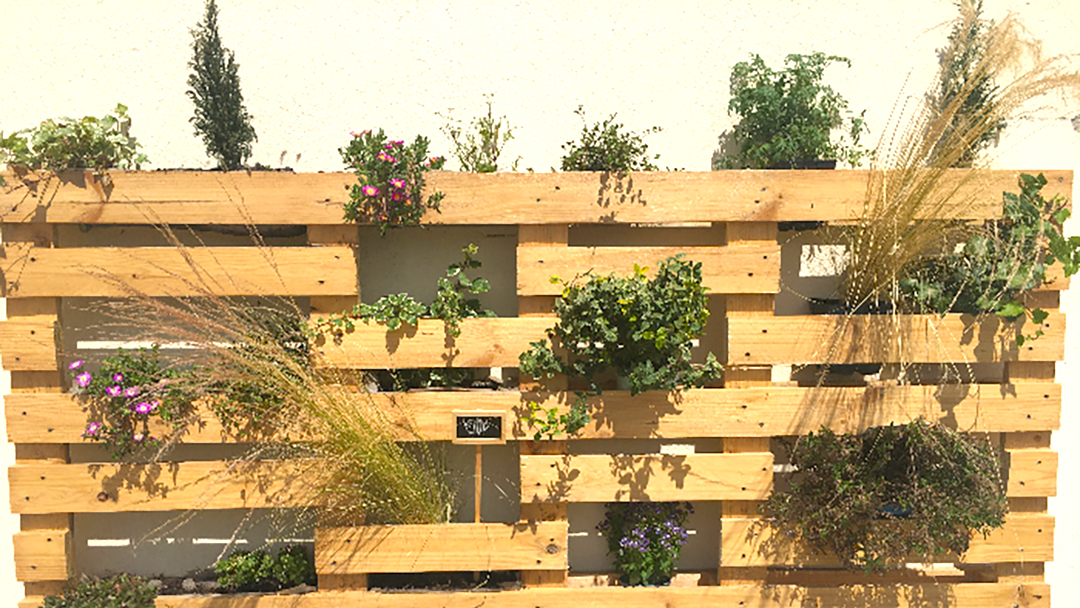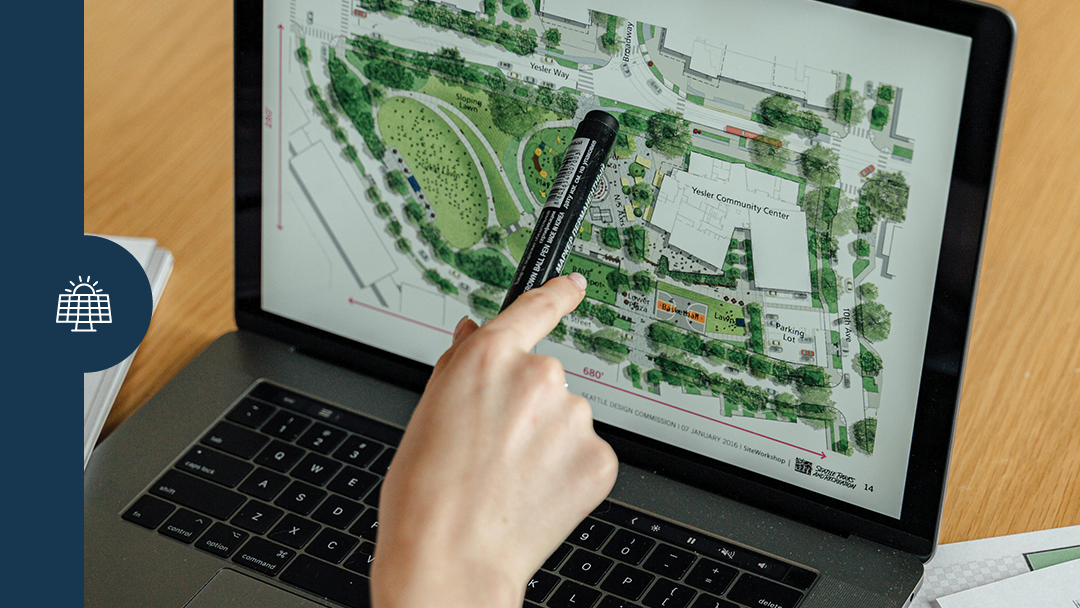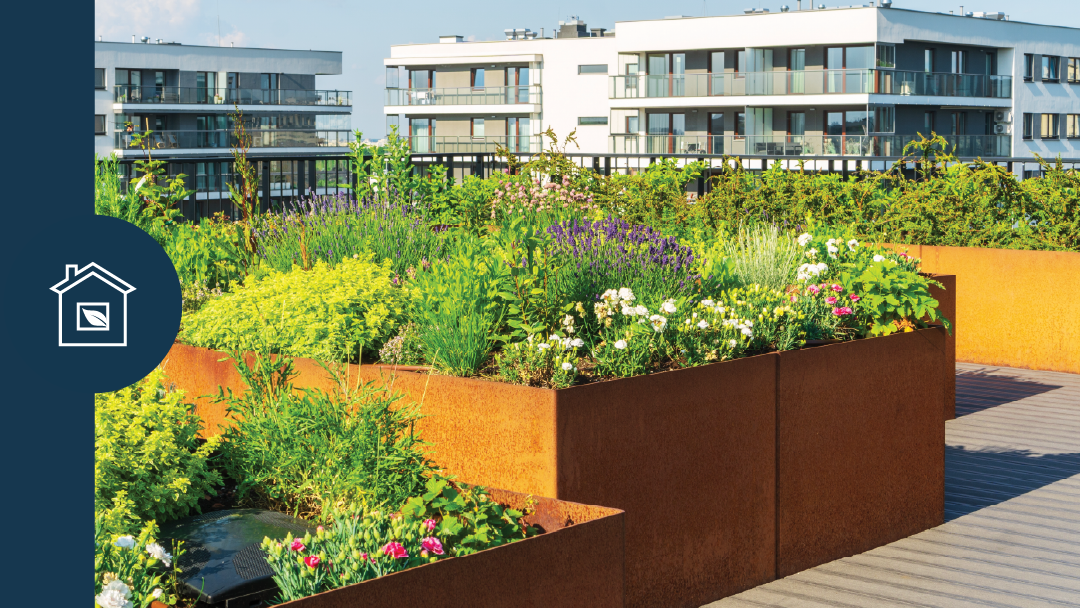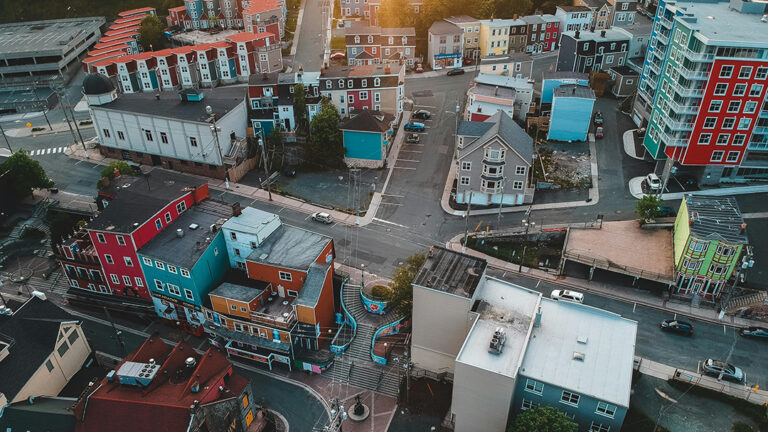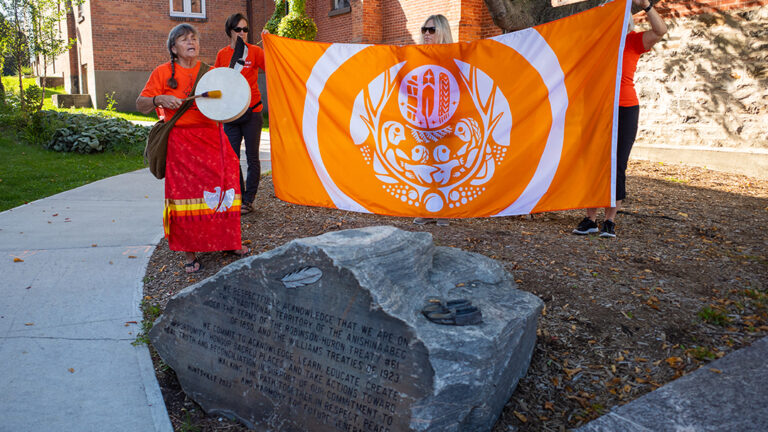This year, the Green Kickstarter Fund has once again attracted a great deal of interest testifying to the awareness that community housing providers have of pressing environmental issues. Launched last May, this second call for green projects aimed at minimizing the sector’s ecological impact, encouraging the implementation of environmentally responsible initiatives, and improving the quality of life of community housing tenants.
Transforming our living environments
As we are all aware, our planet is facing a serious ecological crisis marked by global warming, extreme weather phenomena, and loss of biodiversity, among other signs. These alarming signals call for urgent action, recognizing that human activity is largely responsible for the situation.
Housing also plays a key role in this environmental crisis. Construction methods often favour speed over sustainability, and neglect climate considerations. Taking action in the housing sector is therefore crucial.
Three fundamental pillars are at the heart of the required change: To start with, we need to optimize resources through the sharing of space, equipment, and services. We also encourage a long-term vision that takes collective interests into account, and finally, our approach should evaluate the social and environmental impact of any investment.
We firmly believe that community housing can play a leading role by embracing standards and practices that are more respectful of the environment and more caring towards its inhabitants.
Green projects that enhance community life
This year’s proposed projects featured initiatives focused on sustainability, community well-being, and energy efficiency. The Centre is pleased to have the opportunity to support new project ideas that go beyond bricks and mortar to enhance tenant community life. Here are three that particularly caught our attention:
The University of Winnipeg Community Renewal Corporation (UWCRC 2.0) has launched an initiative focused on eco-responsible transportation. This organization, whose mission is to build sustainable buildings in Winnipeg’s downtown area, integrates sustainability elements into its projects. The most recent, supported by the Green Kickstarter Fund, involves the creation of four electric vehicle charging stations at The Muse Flats housing cooperative. The project provides co-op members with access to a cooperative car-sharing service. In addition to encouraging sustainable transportation options, this project aims to reduce consumption by pooling and sharing resources. It also integrates the values of social economy and a community vision of living environments.
The Donwood Manor retirement home decided to install a growing wall inside its building. This type of green wall is an increasingly popular solution to compensate for the lack of outdoor gardening space, allowing for the natural climatization of indoor spaces using energy-efficient means. This project will offer the residents, most of whom grew up on farms, the opportunity to grow fresh produce. The retirement home has also planned a multi-generational exchange program with neighboring schools. The idea behind this initiative is for the residents of Donwood Manor to become an important part of local community life, while the students benefit from the knowledge and experience of their elders.
The Winnipeg Inner City Missions has embarked on a major project to renovate and revitalize its community centre. With the contribution from the Green Kickstarter Fund, their plans will include the creation of a garden of plants traditionally used in local Indigenous cultures. In order to encourage the use of these plants and share traditional knowledge of their medicinal properties, they plan to build an education centre and a ceremonial area.
The Centre is pleased to help community housing groups adopt innovative climate resilience solutions. We look forward to continuing to support these initiatives through our funds.
Did you miss the last call for GKF projects?
Don’t miss another call for projects by subscribing to our newsletter.
